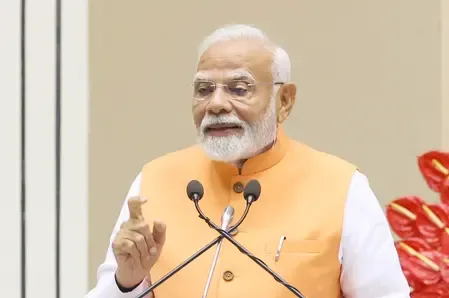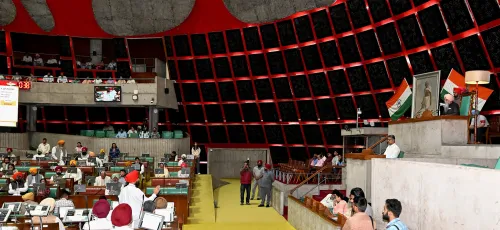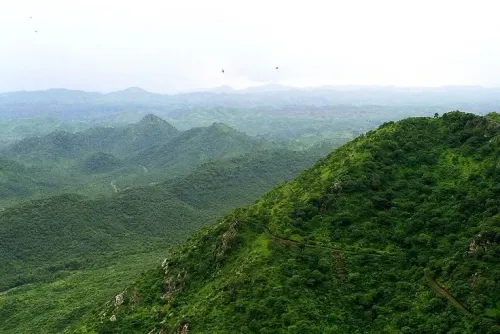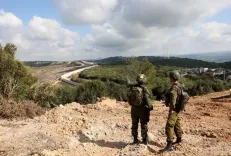How Did PM Modi Respond to the Pahalgam Attack with Full Resolve?

Synopsis
Key Takeaways
- Operation Sindoor executed decisive military strikes against terrorism.
- India's national security has seen a significant transformation since 2014.
- Comparative statistics highlight a decline in terrorist incidents.
- International endorsements showcase India's global defense model.
- Political leadership has been pivotal in reshaping India's defense strategy.
New Delhi, July 30 (NationPress) In a show of support for Union Minister JP Nadda’s detailed account during the Operation Sindoor discussion in the Rajya Sabha, Prime Minister Narendra Modi affirmed on Wednesday that the central government tackled the Pahalgam terrorist attack with unwavering resolve.
On social media platform X, PM Modi stated, “Our government has approached the terror incident in Pahalgam with full determination and resolve. National security is our top priority, and J.P. Nadda ji thoroughly articulated in the Rajya Sabha how Operation Sindoor successfully met its goals.”
Earlier in the day, while speaking in the Rajya Sabha about Operation Sindoor, Leader of the House Jagat Prakash Nadda made a striking comparison between the previous decade (2004-2014) and the current period (2014-2025), emphasizing India’s bold transformation in national security, military response, and political will.
Operation Sindoor was carried out with remarkable precision and efficiency, he noted. Within just 22 minutes, nine terrorist camps, including those in Bahawalpur, Sialkot, and Muzaffarabad, were dismantled. The masterminds of the Pahalgam attack were neutralized through coordinated efforts of Operation Mahadev and Operation Sindoor, he informed the House. Nadda further stated that major terrorist organizations – Lashkar‑e‑Taiba, JeM, and Hizbul Mujahideen – faced significant counteractions.
As the BJP national president, Nadda emphasized that these operations demonstrated India’s operational capabilities. For the first time under the Modi administration, India boldly declared to the world: “Terrorism and dialogue cannot coexist.”
Nadda highlighted the “failures” of the Congress-led governments during the period from 2004 to 2014, where terror incidents reportedly went unchecked, with responses limited to diplomatic notes or trade agreements. He noted that during 2004-2014, there were 7,217 terrorist incidents; however, from 2015 to 2025, that figure saw a drastic reduction to 2,150—an 85% decrease.
Civilian casualties fell by 70% (from 1,770 to 357), while terrorist fatalities rose by 123%, as he pointed out. Stone-pelting incidents in Kashmir, which had surged to 2,654 annually before 2014, now stand at virtually zero. He informed the members of the Upper House that the duration of valley shutdowns has dropped from over 130 days to none. The army, police, and security forces remained the same; the key difference was in political leadership, he asserted.
Nadda recounted numerous attacks during the Congress era, including those in Jaunpur (2005), Varanasi (2006), Mumbai, Delhi, and Ahmedabad, culminating in the 26/11 attacks (2008). Despite the casualties, the Congress government continued trade agreements, confidence-building efforts, and cultural exchanges with Pakistan, he alleged. There was no swift retaliation, he added. Instead, India offered biryani, visas, and better trade relations while bombs detonated in Indian cities, he said. “Sweets were abundant, while bullets rained down. Trade flourished. They served biryani, we bled,” stated Nadda.
In contrast, under the Modi government, India took decisive military actions. “Three days after the Uri attack in 2016, surgical strikes targeted terror launch pads. Eleven days following the Pulwama attack in 2019, the Balakot airstrike executed precise strikes deep within Pakistan. Thirteen days after the Pahalgam massacre in 2025, Operation Sindoor conducted targeted strikes on airbases and terrorist camps with zero civilian casualties,” he detailed.
India utilized indigenous systems – BrahMos, Pinaka, radars, and artillery – marking a significant transition in defense manufacturing from 32% self-reliance in 2014 to 88% today, Nadda noted. Not a single terrorist survived. No civilian was harmed. This, he claimed, represents “full-moon India—decisive, transparent leadership.”
Nadda asserted that the global community firmly supported India’s actions. Following the Pahalgam attack, 61 global leaders, including foreign ministers and heads of state, condemned the incident. Endorsements came from the UNSC, QUAD, BRICS, EU, France, Germany, and many others, he highlighted. International experts now recognize India as a global defense model, praising its domestic military manufacturing and strategic independence, remarked the BJP MP.










